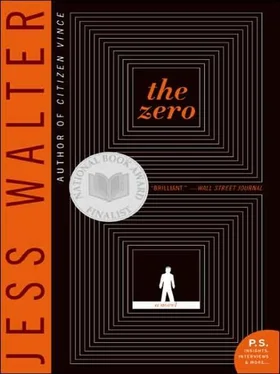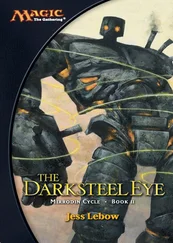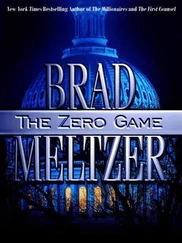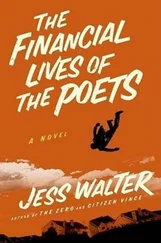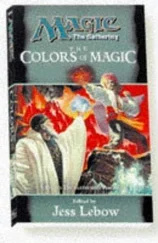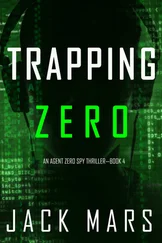“My dad always let me win,” he said, and he moved another pawn. “‘Boy, you got me again,’ he’d say. But one time when I was nine, the weirdest thing happened; it was like the board opened up for me and I could see in all of these directions at once. And I looked up and I knew he couldn’t see the board like that. That he’d never be able to see like that. And I beat him. I mean, I really beat him. I beat him fair and square. I think he’d been drinking that day. He drank some, my dad. After that, he won a game, and then he went back to letting me win. But that one night, I saw fear in his face, fear because he knew that I’d beaten him fair and square. That he had lost to his nine-year-old son.”
Edgar brought out his other knight. “My father was a police officer, but he always wanted to be more, so he went to law school at night. But he dropped out before he could finish. He worked for a while as a liaison between the police and city. I asked him once what a liaison was and he said it was the person who was halfway between things. That’s how I thought of my dad. As someone who only got halfway to the places he wanted to go. He told me once that he’d always wanted to see the West Coast, but the farthest he’d ever made it was Chicago. I remember thinking, if that’s your dream, how hard could that be, to go to the West Coast? It’s not like he wanted to go to Tibet, right?”
There was another low murmur of laughter and Remy had to fight the urge to stand up and defend his life. You think there’s always going to be time for things like travel, and then, it just gets away from you. But he didn’t stand.
“So that was my father,” Edgar continued. “And after I beat him at chess, when I looked at him, that’s all I could see for a long time – the unfinished half of his life. Maybe that’s the life of an adult: You reach a certain age and your life is defined more by the things you don’t do than by the things you do.”
Edgar stared at the chessboard, one side still unmoved. Finally he stood. “The night my father didn’t come home I stood at my bedroom window and wondered what becomes of all the conversations we have with each other, and all the feelings we have, the ones we talk about and the ones we don’t. Does everything just… evaporate? If one end of a conversation is still there, does the conversation still exist? Or is the whole thing gone the moment it hits the air?”
“People talk about the unconditional love of a parent for a child, but that’s not really it. It’s really the other way. Parents choose to have their kids. No kid ever chose to have his parents. They’re just there when you wake up one day. And you can’t just keep having sex and have more parents if those two don’t work out.”
There was a bigger laugh this time. Edgar was killing. He laughed, too, tossing off all the navel-gazing, as if these were the thoughts of a boy. “It always seemed like my dad had something important on the tip of his tongue, something he was just getting around to saying. The night he didn’t come home I thought about that. About how we always think of things we wished we’d said.
“I don’t know what I’d say to my father. But I know what I wouldn’t say. This is what I wouldn’t say: Dad, even when I didn’t love you… I never wanted you to stop loving me .”
Edgar put his hands in his pockets for a moment, then removed them and returned to the chess table.
“I never told my dad this, but after I turned nine, I could’ve beaten him at chess any time I wanted. I let him let me win.”
Edgar reached out to take a chess piece and the single light went dark.
HE SAT in the passenger seat of an unmarked, watching the alleyway entrance of a restaurant through small binoculars. The back door was painted black, the window covered with iron bars, empty boxes and garbage cans piled on either side of it. Remy peeked away from the binoculars to the driver’s seat, where Markham sat reading a National Geographic .
“Anything?” Markham asked. He was wearing a trim beige suit.
Remy glanced down. He was wearing a suit, too, a new one – dark blue. He looked back through the binoculars again. “I don’t think so.”
Markham turned the page of his magazine. “Hey, Brian, do you know how much time deer spend with their mates?”
“No.”
“Try to guess.”
“I don’t know.”
“I know you don’t know. That’s why I want you to guess. If you knew, you wouldn’t be guessing, you’d be telling me, and what would be the point of that?”
“Uh… their whole lives?”
“Nope. One day. You believe it? One day. An entire species of animal capable of nothing but one-night stands. Isn’t that perfect? I mean, if you’re a deer?”
Remy let the binoculars fall to his lap. “I don’t know.”
“Don’t you think deer are kind of sexy? For an animal?”
“I… I couldn’t say,” Remy said.
“I do. Not… you know, for me, specifically. I’m not saying I’d necessarily want to have sex with a deer. But just the way they’re put together, big asses and long legs, they’re kind of like people. And those cute little faces. Shoot, I’d do a deer. I mean, if I was a deer. You know? I can’t say that about every animal. If I was a hippo? Nope. Or a raccoon or something? I’d just be celibate. Or a cat? No way. You’d think we’d be more attracted to gorillas or other primates, but other than those little spider monkeys, I just don’t see it. But deer… I don’t know, I find it kind of evocative, the idea of all these bucks nailing those leggy does once a year and then just running off into the woods.”
Remy put the binoculars to his eyes again. A man was moving down the alley away from the back door, his back to Remy, carrying a plastic grocery bag, walking toward a car parked in the alley. “Are we looking for someone?”
“Is it him?” Markham said. He grabbed the glasses from Remy. “Yeah. That’s him. That’s our friend. Let’s go.”
Markham tossed the magazine in the back. “Don’t forget your briefcase.” Remy grabbed the briefcase at his feet and he and Markham hopped out of the car and began run-walking down the alley.
“You want me to do the talking?” Markham asked.
“I think you’d better.”
Markham stepped up his pace. “Excuse me. Mahoud?”
Twenty steps away Mahoud turned and stepped away from an Audi convertible. He was thick and bald, vaguely Middle Eastern. He wore a tunic under a black windbreaker.
“Mahoud. I’m Mr. Markham and this is Mr. Remy.” Markham offered a badge, which he took, studied, and then handed back.
“How are you, Mahoud?” Markham said.
“I am not good, as you can imagine,” he said. “I have reported hours ago this vandalism upon my restaurant and all day I have waited for you to come.”
“Yeah,” Markham said. “They passed the report along to us. I’m sorry. There are a lot of cases like this, as you might guess. Some of them are pretty serious. We have to concentrate on the ones with violence. Families, children… that kind of thing… we’re up to our assholes in this stuff.”
“Families? Oh. Oh my God.” Mahoud looked at Remy, his eyes dark and inscrutable. “I had no idea there was violence. Well, look here. Do you want to see the letter? I have it. I was taking it to the police department now.” Mahoud opened the bag and showed them a note. In red block letters it read: “Go home, camel-fucker. We know where you live.” Paper-clipped to the note was a wrinkled pink triangle of skin.
“Is that a pig’s ear?” asked Markham.
“Some jerk’s idea of a big joke, yes?” Mahoud said. “Give a Muslim the ear of a pig.” He frowned bitterly at the two men. “I can’t even look at it, I get so mad. My son is in the American army. My son!” Mahoud’s eyes teared up.
Читать дальше
